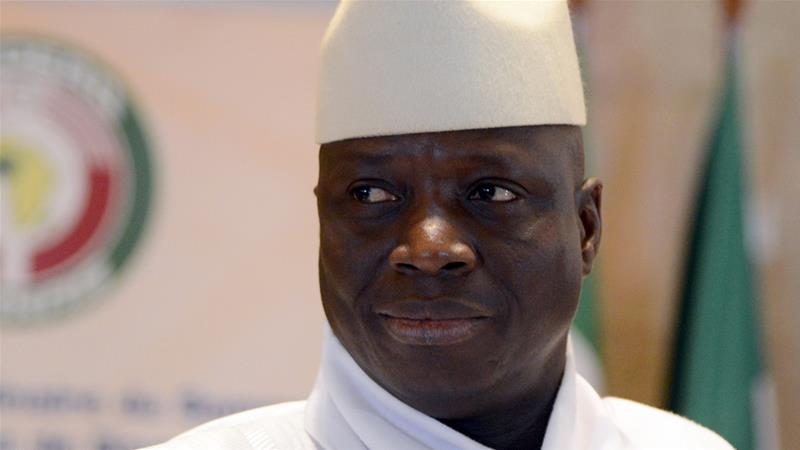Gambia faces the prospect of military intervention by regional forces after a last-ditch attempt to convince Yahya Jammeh to step down as president failed.
Jammeh, who lost a December 1 presidential vote to Adama Barrow, has refused to leave office despite international pressure and a threat by leaders of the Economic Community of West African States, or ECOWAS, to enforce his election defeat.
Thousands fleeing to Senegal amid Gambia crisis
Barrow – who fled to Senegal earlier in the week – has pledged to go ahead with his inauguration on Thursday on Gambian soil.
A deadline of Wednesday midnight for Jammeh to resign passed without the president of 22 years indicating that he would leave office.
Eyewitnesses said the situation was calm in the capital Banjul overnight despite forces loyal to Jammeh being deployed in the city and troops from Senegal, Nigeria and Ghana amassing along the Senegalese border.
Al Jazeera’s Ahmed Idris, reporting from the Nigerian capital Abuja, said that deployment involved air, naval and ground troops.
“A ship of the Nigerian navy is off the coast of Ghana on the way to Gambia, and there are reports that Ghana may also be contributing to the troops’ deployment to Gambia, in addition to Senegal,” he said.
The UN Security Council is scheduled to meet on Thursday to adopt a statement on Gambia that will reaffirm the demand for Jammeh to hand over power, diplomats said.
Jammeh’s refusal to step down has created political and humanitarian turmoil.
So far, at least 26,000 Gambians have fled to neighbouring Senegal after Jammeh declared a state of emergency on Tuesday.
Despite at least eight ministers resigning in the past 48 hours, Ousman Badjie, the chief of defence staff has repeatedly pledged loyalty to Jammeh.
Gambia is one of Africa’s smallest countries and has had just two rulers since independence in 1965.
It is completely surrounded by Senegal and the Atlantic Ocean.
Jammeh seized power in a coup in 1994 and his government has gained a reputation among ordinary Gambians and human rights activists for torturing and killing opponents.
[Source: Al Jazeera and news agencies]





 WhatsApp us
WhatsApp us 

